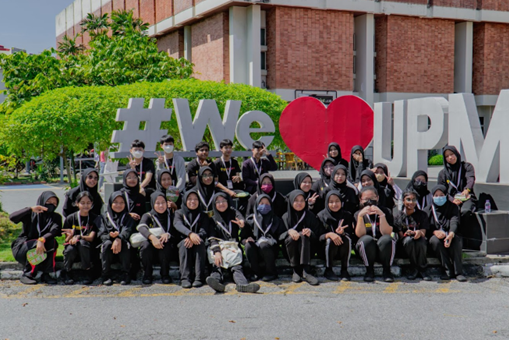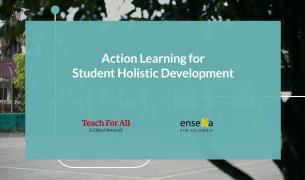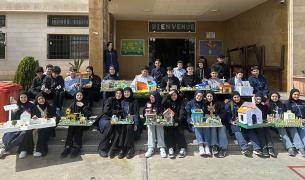Connecting the worlds of learning and work

In 2012, I started my career as a public school teacher with Teach For Malaysia’s inaugural cohort of Fellows. I taught geography in a school that was ranked in the lowest performing 300 schools in the country.
When I was teaching, I recognized two things: students from more marginalized backgrounds require more support to be successful because their environment does not enable it (compared to their more affluent peers); and many existing soft skills programs that are offered for students are often subpar—they do not sustain impact. This is why I started Project ID, a programme that strives to nurture positive mindsets and give exposure to students.
I initially started this as a volunteer project while I was serving as a teacher. Today, Project ID is my full time job, and with a dedicated team of 10 we design innovative student-centric experiences that develop student leadership, social-emotional learning, and youth employability. The activities we run come in the form of bootcamps, workshops, and student competitions. In all our initiatives, our priority is to nurture a growth mindset and champion student voices by inviting students to co-create and take a leadership role in their own learning.
EduKerjaya: Our capstone programme for youth employability
One of our capstone projects centered on youth employability and Future of Work is called EduKerjaya (Kerjaya means “career” in Malay). It is a three-month career aspirations programme to help 16 year-old students identify their aspirations and empower them with the skills and knowledge necessary to pursue their dreams. It has three components: a bootcamp on self-discovery, pathway planning, and career preparation; university visit + career sharing sessions by industry professionals; and an opportunity to intern with various organizations including banks, law firms, tech companies, media agencies and nonprofits.
The goal is to support our students (especially those who have limited opportunities) to gain real-world skills and experiences that will help propel them towards greater employability and a successful career.
EduKerjaya is a first-of-its kind programme to provide early career exposure to underserved 16 year-old students. By connecting the worlds of learning and work, EduKerjaya's school-Industry partnerships provide opportunities for students to build connections with professionals and to learn by “doing” in real-world contexts.
The Impact: Transforming Lives, One Student at a Time
To date, EduKerjaya has impacted approximately 200 students and has engaged over 50 industry professionals, including the Country Video Lead at Youtube Malaysia, partners at one of Malaysia’s biggest law firms, and senior management at multiple banks. EduKerjaya’s primary impact on students is to prepare them for the world of work through hands-on experiences and skill-building opportunities.
For example, one 16 year-old student participant credits EduKerjaya with improving her communication skills and providing the clarity she needed to pursue a career as an author. Here’s how she shares her transformational journey through the program after being placed with a media company: "I didn’t know what to do or where to even start. However, that changed when I joined EduKerjaya. I finally got to experience how it feels to start working for a company”.
When describing the programme’s impact, she shared: “My communication skills have improved. I became better when it comes to presenting my ideas and communicating with club members and classmates. The communication skills I’ve learned will help me with my ambition which is to be an author. This skill is important because you need to communicate with publishers and convince them to help with your book publishing.“
Like this 16 year-old participant, other students who have gone through the mini-internship also reported having stronger internal motivation and confidence, better soft skill development (especially communication skills), and a desire for self-improvement. Most had already planned out new, actionable goals after the internship ended. And from their employers we learned that most supervisors who hosted EduKerjaya mini-internships for our participants agreed that companies should begin working with younger interns (i.e. high schoolers).
Moving forward, we are focused on redefining the Future of Work learning experience by scaling EduKerjaya to more students (and more regions), educating more employers to consider giving internships to younger students (16 year-olds), and identifying strategies to align EduKerjaya with the national curriculum.


